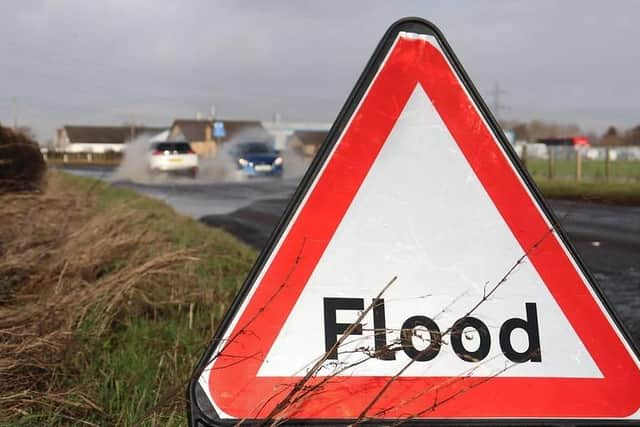Some Central Beds residents unable to flush loos or shower as flood water overwhelmed sewers
and live on Freeview channel 276
Residents in part of Central Bedfordshire were unable to flush toilets, take a bath or shower, or to wash-up because the sewers failed to cope with the volume of recent flood water, a meeting heard.
Profits made by water companies could be diverted towards the necessary infrastructure to prevent the system being overwhelmed by flooding, Central Bedfordshire Council’s deputy leader suggested.
Advertisement
Advertisement
Independent Biggleswade West councillor Hayley Whitaker described how one of the frequent complaints was around sewage.


“Our sewers, maintained not by us but by Anglian Water, were so full of flood water that residents couldn’t flush their toilets, couldn’t use their showers or baths, or wash pots,” she said.
“This wasn’t just one or two. It affected many people. The company told me it didn’t have the infrastructure to cope with that amount of water.
“So it’s a bit of a shock when you hear last year Anglian Water made £169m profit. We could approach companies, such as Anglian Water, and say ‘can we have some of that money to improve our sewers?’ so residents can flush their toilets.”
Advertisement
Advertisement
A strategic policy debate on flooding was held at a full council meeting to consider what improvements are needed locally and the local authority’s future response.
Multiple parts of Central Bedfordshire were affected by flooding during Storm Henk from main rivers, smaller watercourses, surface and ground water, according to a council report.
CBC directly received about 90 reports of flooding affecting homes, businesses, roads and other infrastructure, said the report.
Executive member for highways and flooding and Independent Sandy councillor Simon Ford explained: “We’re experiencing more extreme weather events, with many challenges facing us. Every penny needs to count.
Advertisement
Advertisement
“As we move from response to recovery, we’ll consider the issues to identify positive actions which can be taken in the long-term, with some immediate highways drainage maintenance and ditch clearing having taken place already.
“Do we need to lobby government about the level of funding available and demand more certainty, so we can better plan our work?” he asked.
Independent Flitwick councillor Heather Townsend referenced six local flooding events since May, saying: “The reasons are different … blocked gullies, blocked water courses, broken pipes, a lack of capacity, the lack of preventative maintenance and new drainage systems for housing developments not working.
“There are four different stakeholders potentially dealing with an issue. Do we have a mechanism for better working practices?
Advertisement
Advertisement
“Many of our fields act as natural soakaways. This stops the water getting on to the roads in the first place. Our surface water draining system doesn’t have capacity.”
Green Party Ampthill councillor Susan Clinch acknowledged the connectivity around flooding, although warned of “some compartmentalised thinking”.
She added: “Greensand Country Landscape Partnership has made a huge investment in engaging all stakeholders along the Greensand Ridge. We could be a partner in that, not just an observer.”
Conservative Cifton, Henlow and Langford councillor Richard Wenham suggested: “A number of blocked gulley issues on FixMyStreet go unanswered.
“Ditches is a continuing issue where ownership is unclear. We need our geographic information system map up-to-date.”